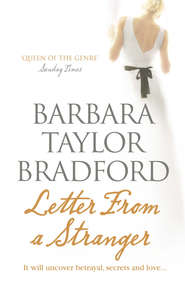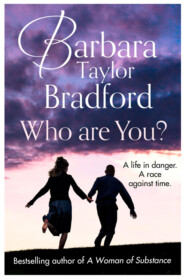По всем вопросам обращайтесь на: info@litportal.ru
(©) 2003-2025.
✖
Remember
Автор
Год написания книги
2018
Настройки чтения
Размер шрифта
Высота строк
Поля
‘Take your time,’ Arch replied. ‘I can guarantee you this little shindig is going to last all night.’
FIVE
Nicky was in and out of Tiananmen for the next few hours, as were most of the foreign press corps.
The areas surrounding the square were a mess. Soldiers were everywhere and the crowds had not diminished. In fact, it seemed to Nicky that they had increased. Overturned vehicles and abandoned bicycles littered Changan Avenue, and an even bigger number of fires were flaring as residents continued to torch tanks and armoured personnel carriers, their grief and anger unassuaged.
In the immediate vicinity of the Beijing Hotel the scenes were chaotic. The wounded, the dying, and the dead were piling up, and distraught and weeping Beijingers, many of them covered in blood, were desperately trying to move the victims. Their aim was to get them to the hospitals and morgues as quickly as possible, and they were valiant in their efforts. They were using all kinds of makeshift stretchers; Nicky even saw one made out of a door ripped from a telephone booth and tied to two long pieces of iron pipe. Several Number 38 buses had been pressed into service as ambulances, and so had pedicabs and carts. Most of the injured were being taken to Xiehe Hospital. It was fairly close to Changan, since it was located in one of the streets immediately behind the Beijing Hotel.
Conversely, the square appeared to be peaceful enough when Nicky went back there for the fourth time, at three forty-five on the morning of 4 June. Yet after only a few minutes in the square she felt the tension in the air. It was a most palpable thing, and underlying the tension was the smell of fear.
The troops had moved in, were positioned at the far end.
Near the Goddess of Democracy she saw lines of soldiers drawn up. They stood staring at the square, their faces cold, cruel, brutal, rifles in their hands, ready to charge on their own people when the order was given.
As soon as she reached Clee, hovering near the monument, he told her there were machine guns positioned on the roof of the Museum of Chinese History on the eastern side of the square.
‘They’re well prepared, aren’t they?’ she said, her tone sarcastic. Contempt settled on her face. And then she noticed that some of the students on the monument were busy writing, and she tugged Clee’s sleeve. ‘What are they doing?’ she asked, puzzled.
Clee sighed, shook his head. ‘Yoyo told me they’re writing their wills.’
‘Oh God.’ Nicky turned away, swallowing, and unexpectedly she felt the prick of tears behind her eyes. Immediately, she took control of herself. The more emotional the situation and the story, the cooler she must be.
Try though she had to conceal her feelings, Clee had noticed her reaction, and he put an arm around her. ‘It’s a lousy world we live in, Nick, and you know that better than anybody.’
‘I do. Still, some things are really hard to take.’
‘I should say.’
She gave him a half-hearted smile. ‘You mentioned Yoyo. Where is he?’
‘Somewhere around. I gave him hell a short while ago, told him to split. Then I saw him talking to Arch.’
‘Where’s Arch?’
‘He went back to the hotel. To call New York, and have a pow-wow with Jimmy about your film segment.’
‘We must have missed each other on Changan. It’s a foul mess out there.’ Again she glanced at the students on the monument. They must know how dangerous it is now.’
‘That singer, Hou Dejian, and a couple of other leaders have been on the loudspeakers, asking the kids to leave in an orderly fashion, and -’ Clee stopped short as every light in Tiananmen went out.
‘I wonder what this means?’ Nicky peered at him in the gloom.
‘The worst, I suspect,’ he answered grimly. ‘The lights didn’t fail, they were turned off by the authorities.’
‘Bastards,’ Nicky muttered.
Within the space of only a few minutes the loudspeakers on the monument began to crackle. A disembodied voice said half a dozen words, and then the volume increased and music began to play.
‘It’s the “Internationale”!’ Clee exclaimed. ‘Christ, I wonder what the kids will do now?’
‘Leave. Hopefully,’ Nicky replied.
But as the words of the famous song rang out across the square, Nicky knew they would not do so. She could see, even in the dim light, that the students simply sat there listening to the record, motionless, unshakeable, proud in their resoluteness. The minute the record ended it was played again, and repeated several more times during the course of the next twenty minutes.
Nicky and Clee stayed together, conferring quietly from time to time, and talking to other journalists. Everyone expected the military attack to begin at any moment. Nicky and Clee steeled themselves for the confrontation between the students and the troops. But another half hour passed and nothing untoward occurred until, unexpectedly, an array of lights in front of the Great Hall of the People was turned on dramatically. They flooded that side of the square with the most powerful and brilliant illumination.
At the same time, the loudspeakers came alive once again, and several people spoke. Neither Nicky nor Clee could understand what was being said, but a British journalist standing next to them told them the gist of it. ‘The leaders were urging the students to quit the square. They’re all saying the same thing - get out before you’re killed.’
‘Ah, but will they? I doubt it,’ Clee said, swiftly answering his own question.
‘I agree with you,’ the British journalist murmured. Then he shrugged, wandered off.
Clee said, ‘Nicky, I gotta go. I want to get some shots of these guys on the loudspeakers, and of Chai Ling. This is one helluva moment.’
‘Go ahead, Clee. I must look for Yoyo and Mai. They have to be somewhere around here,’ she said as he hurried away.
Nicky spent the next ten minutes or so strolling in the area of the monument, her eyes scanning the crowds and the ledges hopefully. But there was no sign of Yoyo and Mai, and she began to wonder if they had finally heeded her earlier warnings and left the square. She fervently hoped that they had.
Someone else spoke to the students over the loudspeakers. There was a short silence, and then a second voice was heard echoing out, filling the warm air with words.
Nicky did not have the slightest idea what was being said, and she walked on, circling the monument one last time. Much to her surprise, a number of the kids were beginning to stand up. Slowly they climbed down off the ledges and walked away. She stood watching them go.
Many had tears streaming down their faces, and her heart went out to them. They had lost their peaceful fight for freedom and democracy. Military power had prevailed and many innocent people had been brutally slaughtered. But at least some lives will be saved now, she thought, and glanced around anxiously. Where the hell were Yoyo and Mai?
Dawn was breaking, streaking the sky with light, filling it with an eerie, incandescent glow. She peered at her watch. It was after five already, and she could not stay in the square much longer. Sighing under her breath, she left the monument and started to walk to Changan. It was time to return to the hotel to prepare her newscast and the film segment, shower, put on her makeup and change her clothes. Earlier, she and Arch had decided that she would do the filmed piece on the balcony of the hotel first, to be sent out by courier later that morning. At eight fifteen she would do her live phone narration for the seven o’clock nightly news.
Nicky had not walked very far when she suddenly remembered the small canvas travel bag Yoyo kept in his tent. He had once told her his most important possessions were in it. Was his passport in the bag? Had he gone back for it?
Making a swift decision, she spun around, dodged through the students who were now leaving, and sped towards the tent encampment. As she ran she saw to her dismay that an increasing number of soldiers were entering the square. It seemed to her that they were everywhere, and in the distance she heard the clatter and rumble of tanks and armoured personnel carriers moving forward across that vast rectangle of stone.
She paid no heed, but plunged ahead through the deserted encampment, shouting, ‘Yoyo! Mai!’
One or two faces peered out of tents, and she cried, ‘Leave! Tanks are coming!’ Realizing that they did not understand English, she made wild and urgent gestures with her arms, and cried, ‘Go! Go!’, hoping they would somehow get the message. Then she ran on, making for the centre of the encampment, still calling at the top of her voice, ‘Yoyo! Mai!’
They saw each other at exactly the same moment.
Yoyo and Mai were rounding the side of one tent when Nicky came out from behind another, and was instantly in their direct line of vision.
They had both put on jackets, and Yoyo was carrying the small canvas bag.
‘I’ve been looking for you all over!’ Nicky cried.
‘Forgot bag,’ Yoyo explained, holding it up. ‘Bag important. Passport in it.’
I’ll say it’s important, Nicky thought, but said, ‘Come on. Troops are here. Everyone’s leaving.’ She swung away from them, ready to return through the encampment.
‘This way! It quicker!’ Yoyo exclaimed.











